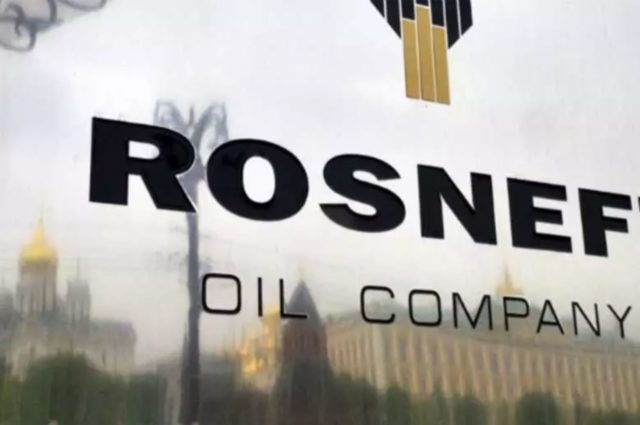
Kremlin Publicizes Its View on Europe’s Energy Crisis
Publication: Eurasia Daily Monitor Volume: 18 Issue: 153
By:

The Kremlin is skillfully exploiting a European energy crisis caused in part by flawed European policies. On October 6, at the TTF Hub in the Netherlands, the price of natural gas rose to an all-time European record of $1,936 per 1,000 cubic meters. Due to high consumption and limited supply availability, European gas storage levels are at their lowest in at least a decade at the start of the heating season (EurActiv, September 30). Russian Gazprom is playing on the anxiety by limiting the supply and forecasting a “cold, snowy winter in Europe” (Interfax, October 6).
On that same day, Russian President Vladimir Putin staged an informal policy discussion at his Novo Ogarevo residence with top officials from Russia’s energy sector, publicizing the event for political effect on European energy markets.
Putin and Deputy Prime Minister Aleksandr Novak attributed the crisis largely to strategic decisions at the level of the European Commission, such as: overreliance on volatile spot markets for gas, to the detriment of pipeline-delivered gas on long-term contracts with fixed prices (where Russia is notably the primary supplier); the unreliability of renewables (wind and solar) causing a growing deficit of electrical power, even as demand for electricity keeps rising, driven by de-carbonization policies; and an overall miscalculation of the energy supply-demand balance by the European Commission (TASS, October 6).
Putin dismissed complaints that Russia is withholding gas supplies from European markets. He and other participants in this session remarked that Russia is fully meeting its obligations under existing supply contracts—a fact that German Chancellor Angela Merkel confirmed on the same day (see below). But it is equally a fact that Russia is withholding gas supplies over and above the existing contracts in Europe. This tactic is calculated to exacerbate the gas crisis and coerce Berlin and Brussels into authorizing the operation of Gazprom’s Nord Stream Two pipeline as a solution to the crisis.
According to Novak, a quick certification of Nord Stream Two and the start of its operation would be a positive signal to Russia, opening further possibilities. Russia would then consider selling gas volumes on the electronic trading platform in St. Petersburg. This move, even with limited volumes, could help balance out the spot market price levels in Europe. President Putin said that he would endorse this idea.
This staged event conveyed the message that energy market volatility and exorbitant prices in Europe are not in Russia’s interest. Russia does not want European natural gas–dependent companies (i.e., Russia’s paying customers) to go out of business. Russia’s interest is to stabilize European energy markets as soon as possible, namely on Russian terms, starting with Nord Stream Two.
Igor Sechin, the head of Rosneft and the executive secretary of the Presidential Commission for the Fuel and Energy Complex, made headway in the October 6 session with his earlier proposal for Rosneft to enter the European spot market for natural gas. Sechin’s proposal would put a first dent into Gazprom’s existing monopoly on Russian gas exports to Europe. Billed as a “pilot project,” it would authorize Rosneft to deliver 10 billion cubic meters (bcm) of gas per year from Rosneft’s own fields to European spot markets. For transportation, Rosneft would rent the corresponding capacity in Gazprom’s own export pipelines (Russia’s “single gas export channel”). While destined for trading at spot-market prices, Rosneft’s 10 bcm would go into the Nord Stream system and the OPAL pipeline (overland in Germany) alongside Gazprom’s contract-priced volumes. According to Sechin, the entry of a second supplier beside Gazprom could demonstrate compliance with the anti-monopoly provisions of the European Union’s Third Energy Legislative Package. This could (as Sechin seems to believe) facilitate German and EU approval of Nord Stream Two and full use of OPAL.
Sechin has been pushing this proposal against Gazprom’s resistance for some time. Sechin has, furthermore, argued that record-high spot market prices would bring windfall profits to Rosneft and, correspondingly, a windfall in taxes for the Russian government (Kommersant, September 21). The October 6 meeting seems to have tentatively endorsed Rosnsft’s “pilot project.”
To help maximize Russia’s natural gas export potential to Europe and China this winter (at record-high prices), Sechin proposes that Russian electrical power plants should purchase and stockpile fuel oil for possible use to generate electricity, in lieu of natural gas. This substitution would make it possible to redirect natural gas volumes toward export, if the price levels remain attractively high (TASS, October 6). Such a move would, however, sabotage the European Union’s and United States’ de-carbonization and climate agendas.
German Chancellor Angela Merkel has confirmed Putin’s assertion that Russia is fully meeting its natural gas supply commitments under existing contracts. On the same day as Putin’s session in Novo Ogarevo, Merkel told the press that she had telephoned President Putin to inquire about the situation with gas storages in Germany and in the EU as well as the use of Ukrainian transit pipelines for Russian gas exports. According to Merkel, Russia has thus far honored all gas purchase orders from Europe; indeed, “there are no gas purchase orders that Russia has turned down.” As Merkel explained, “Russia can only deliver gas on the basis of binding contracts, and not ‘just like that.’ The question therefore arises: Has enough gas been ordered? Or is the high price a reason for not ordering much?” In Merkel’s opinion, “We have become accustomed to very low gas prices” (Bundeskanzlerin.de, October 7).



